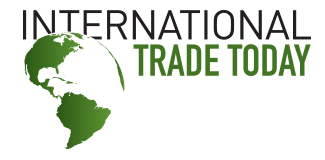Commerce Finalizes Waiver of AD/CVD for SE Asian Solar Cells, Adds Use Requirement
The Commerce Department is finalizing a two-year waiver from antidumping and countervailing duties for solar cells and modules from Cambodia, Malaysia, Thailand and Vietnam that are subject to ongoing anticircumvention inquiries. The agency’s Sept. 16 final rule mandates that no suspension of liquidation, cash deposit requirements or AD/CV duty assessments will apply until June 6, 2024, in the event that Commerce finds circumvention of Chinese solar cells duties, though the grace period could be terminated earlier, and the solar cells must now be used within a certain period to qualify.
The final rule comes in response to a proclamation issued June 6 by President Joe Biden that declared an emergency from threats to electricity generation and directed Commerce to implement a 24-month grace period (see 2207010043). Commerce issued a proposed rule in July that garnered 16 comments (see 2206060036), 11 of which supported the proposal and five of which opposed (see 2208090028).
The new utilization requirement, which was not included in the proposed rule, is intended to address fears of stockpiling raised by commenters. To qualify for the grace period, Southeast Asian solar cells must not only be entered prior to the waiver’s “termination date,” currently scheduled for June 6, 2024, but must also be used or installed in the United States by a “utilization expiration date” that falls 180 days after the termination date. The utilization requirement applies to Southeast Asian solar cells and modules entered Nov. 15.
“It is not Commerce’s goal to have merchandise that enters before the Date of Termination be used in projects long into the future, as the emergency declared by the President exists at this very moment,” Commerce said.
The waiver applies not only prospectively to merchandise entered on or after the effective date of the final rule, but also to entries prior to the final rule and proclamation that could otherwise be subject to AD/CV duties if Commerce issues an affirmative preliminary or final determination. “This action will ensure that, once this emergency has passed, suspension of liquidation and collection of cash deposits of any AD/CVD estimated duties and duties will be instituted and applied prospectively, to post-Date of Termination entries, as set forth by statute and regulation,” Commerce said.
Though the termination date -- after which AD/CVD will apply -- was set at June 6, 2024, by the underlying presidential proclamation, Commerce said that AD/CVD may apply to subject merchandise entered before that date if the president ends the emergency. If that happens, Commerce will direct CBP to suspend liquidation and require AD/CVD cash deposits for entries on or after the new termination date, and the utilization date will also be moved forward to reflect the new termination date, the agency said.
Commerce said it is issuing the waiver pursuant to 19 USC 318, which allows for entry free of duty for “food, clothing, and medical, surgical, and other supplies for use in emergency relief work.” Some commenters questioned whether that provision can be used to waive AD/CVD, or whether the imports of solar cells can qualify as emergency relief supplies.
“Commerce disagrees with these commenters,” it said. The plan associated with the 1979 transfer of AD/CVD jurisdiction from the Treasury to the Commerce Department “explicitly transferred section 318 functions related to AD/CVD ... from the Secretary of the Treasury to the Secretary of Commerce -- indicating that it was clearly contemplated that section 318 could be applied to AD/CVD,” the agency said in the final rule.
And the provision of electricity is a circumstance to which emergency relief work applies, Commerce said. “Electricity is a basic necessity of life in the United States similar to housing, food, and water. It enables necessary medical care, national defense, and provides for essential communications, and for health and safety in extreme temperatures,” the agency said.
“Moreover, there is historical precedent for invoking the statute to permit the duty-free importation of a broader variety of goods than certain commenters’ proposed limitation,” Commerce said. “For example, President Truman invoked section 318 to permit ‘the importation free of duty of ... timber, lumber, or the products suitable for the construction or completion of housing accommodations,’ after proclaiming “an unprecedented shortage of housing, particularly for veterans of World War II and their families” in Proclamation No. 2708.



